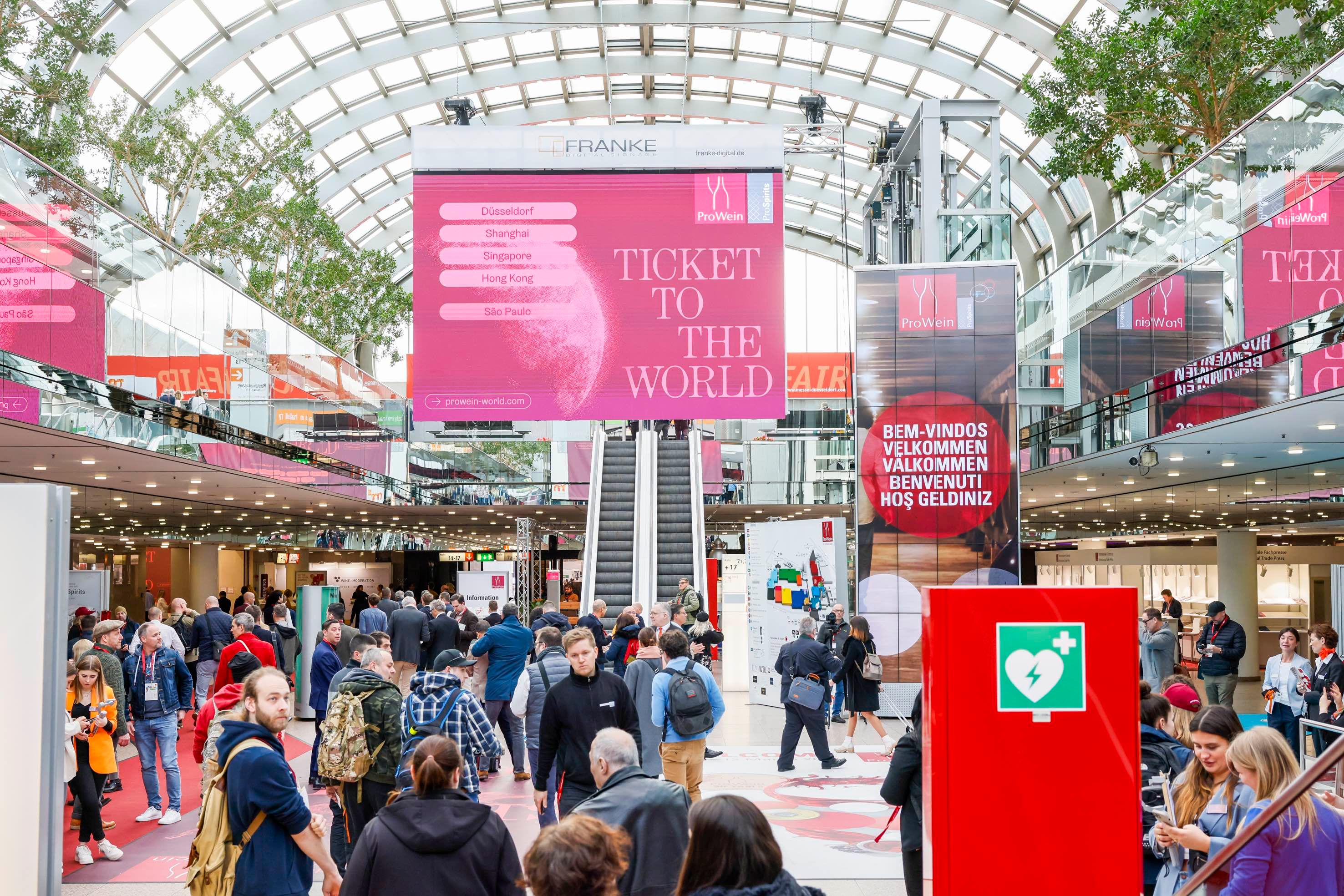“I am totally convinced that a smaller ProWein will be a better show and provide a better balance between visitors and exhibitors compared to the 6,800 exhibitors we had in 2019.”
Now I am not sure if infamous political spin maestro, Alastair Campbell, has been doing some freelance work at Messe Dusseldorf in recent weeks, but it’s certainly an interesting reflection by ProWein director, Peter Schmitz, on how he explains, by his own admission, the shrinking size of ProWein compared to its bumper pre-Covid years.
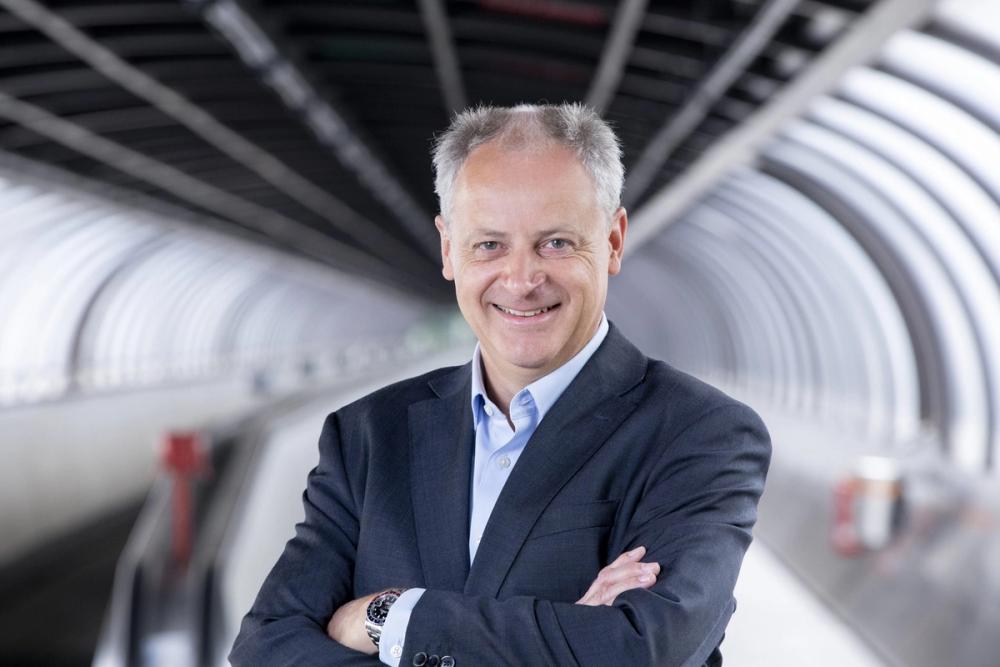
Peter Schmitz is in bullish mood ahead of ProWein 2025 in Dusseldorf having made the necessary changes to drive a "smaller" but "healthier" show
2025 will see ProWein exhibitors fall to around 5,000 from the 5,400 this year and an expected 47,000 trade visitors versus the 50,000 expected to go to Wine Paris in February.
Schmitz, though, was in an upbeat, bullish mood when we met in London last week. Very much on the front foot, happy to stand up for ProWein’s long standing record as what he calls still the “number one international wine and spirits trade show” in terms of global reach, with its 5,000 exhibitor producers coming from 65 countries and 140 wine regions - versus the 4,600 exhibitors from 50 producer countries set to exhibit at Wine Paris in February.
Whilst he recognises and respects Wine Paris’ sudden growth, he is also proud of ProWein’s position and importance to so many producers and buyers from so many countries around the world. He also questioned just how far Wine Paris can grow if it is sticks to its repeated commitment of staying in central Paris.

The attraction, he says, of Paris is clear for producers and visitors alike - it has, after all, just hosted the Olympics and is one of the world’s leading and most visited cities. But that does not mean it now has all the answers that ProWein does not, stresses Schmitz.
Not that he really wants to get distracted and into a direct head-to-head comparison with Wine Paris. He says all major trade fairs face the same challenges. There is now even more focus and pressure on producers and buyers, alike, about which trade shows they go to, if they go to any at all.
“We are facing problems from the market and the competition - that is clear,” he says. “There is now more pressure on producers, particularly smaller ones, to prove the return of investment needed when their cellars are full and the prices in the market are not so good.”
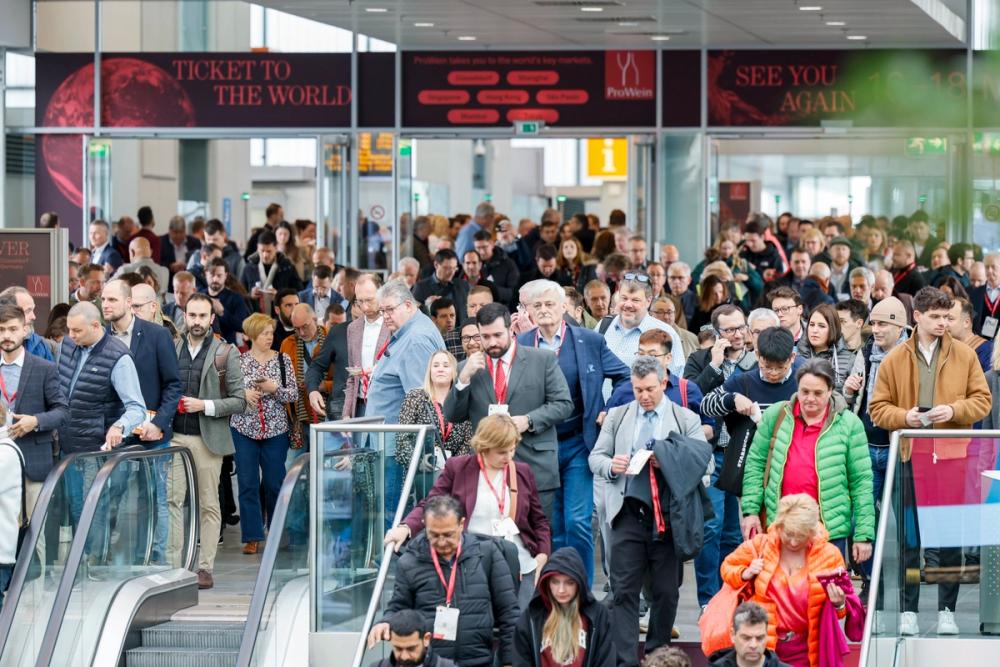
ProWein faces being over taken for the first time in 2025 by Wine Paris in terms of the number of visitors attending the respective shows
The boom pre-Covid days are over and we need to get used to what he sees as the new future of trade shows, where they can each have their serious role to play and be vitally important to the producers and buyers that choose to go to them.
There are, after all he says, three major trade shows taking place in Europe within eight weeks of each other in 2025 with Wine Paris in February, ProWein in March and Vinitaly in April.
Listen and adapt
His job is to make sure ProWein attracts its fair share within the context of this new trade show environment. It has meant getting out in the market and listening and talking to producers and buyers alike.
So what does Schmitz mean by a “smaller” ProWein? Literally that. It has taken the decision to cut the number of halls to 11, which is quite the change to the 17 we had to plough round in its peak years. A move that, he says, has been welcomed by exhibitors as it will give them a tighter show in which to operate in and attract buyers to their stands. It will also make it a much more effective show for buyers to attend and get around, argues Schmitz.
“ProWein will be a healthier show by being a bit smaller,” claims Schmitz.
It is also introducing an improved networking and meeting platform whereby producers and buyers can identify those they most want to connect with and have face to face talks during the show.
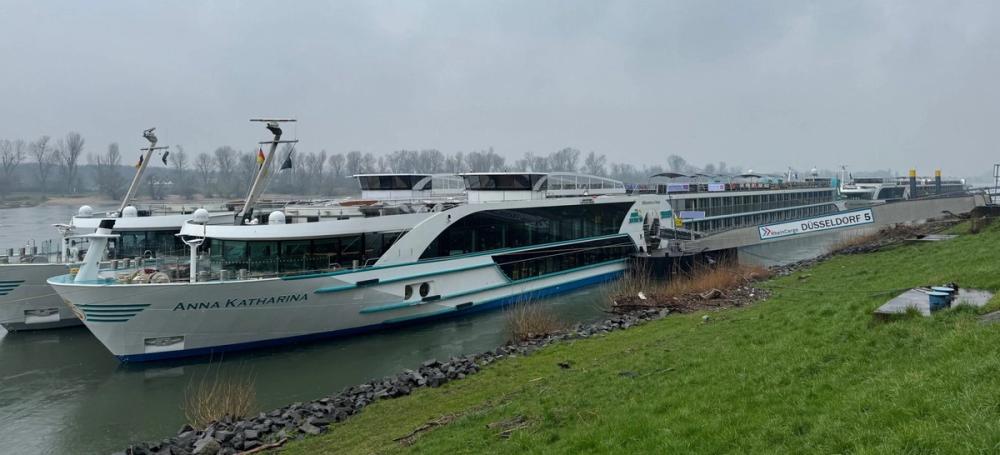
Finding affordable accommodation has been a key issue for visitors to ProWein and one that is being addressed with a new Booking.com-style hotel booking platform
Arguably the biggest change in 2025 is not to the actual show itself, but in how ProWein is doing what it can to make it far more affordable show to attend. The availability and cost of hotels has become one of the biggest drawbacks of the fair. To help get on top of the issue ProWein has been working with Messe Dusseldorf, and travel company, Kuoni Tumlare Congress, to introduce a new hotel booking platform that can work with hotels to cover all the 60 plus trade shows that take place in the city across the year.
That way peaks and troughs in hotel demand across the year can be managed to allow hotels to offer rooms at affordable rates at key times, like ProWein. Hotel prices, for example, are currently available for between £100 and £250. Click here to find out more and see the range of prices available.
Schmitz hopes is a further example of the steps ProWein is taking to address the needs of its exhibitors and visitors.
Areas for growth

The spirits and no and low areas of ProWein have both seen big increases in size
A key growth area at ProWein 2025 will be its expanded ProSpirits section, which was introduced this year, with some 450 exhibitors, up from 420, across two dedicated halls. Its ProWein Zero section for low and no alcohol products is also up 50% in size, reflecting the huge increase in demand across those categories in the on and off-trade.
Next year’s show will also include dedicated areas for Champagne, organic wines, packaging and design, gastronomy, masterclasses and what is being billed as the Concept Store - which will be a chance to see new retail and technology initiatives for wine and sprits.
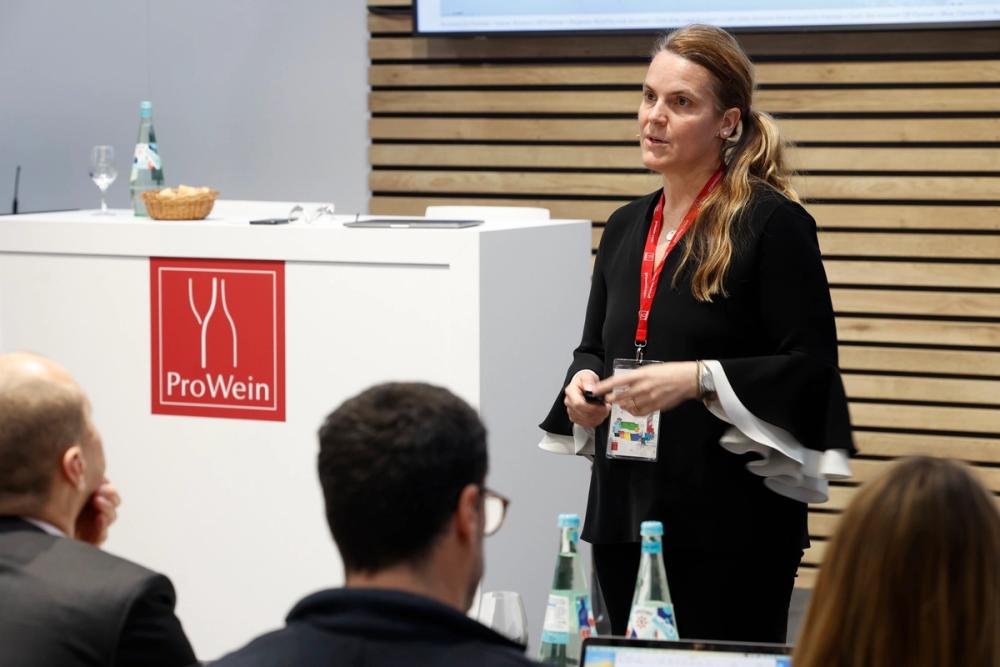
US wine writer, Cathy Huyghe, is co-ordinating the enhanced dedicated Business Forum at ProWein 2025
A dedicated Business Forum is also being held with talks and panel debates on all three days of the fair with each day dedicated to a different theme specifically targeting growth and challenging issues facing wine and sprints.
The Sunday will see a spotlight on attracting new drinks consumers, Monday will include a number of advice-style sessions to help buyers get on top of issues such as AI, social media, and new routes to market, whilst Tuesday will focus in on tackling sustainability. The forum is being pulled together by US wine writer and founder of Enolytics, Cathy Huyghe.
International strength
ProWein Dusselforf is now of seven shows that ProWein runs around the world with trade fairs taking place in Shanghai, Hong Kong, Singapore, São Paulo, Mumbai and a new fair this year in Tokyo.
Schmitz says it is invaluable being able to hear first hand the challenges and opportunities there are for producers and buyers all over the world. Lessons that can be applied to help it run more effective and practical shows in each of its target cities and regions.
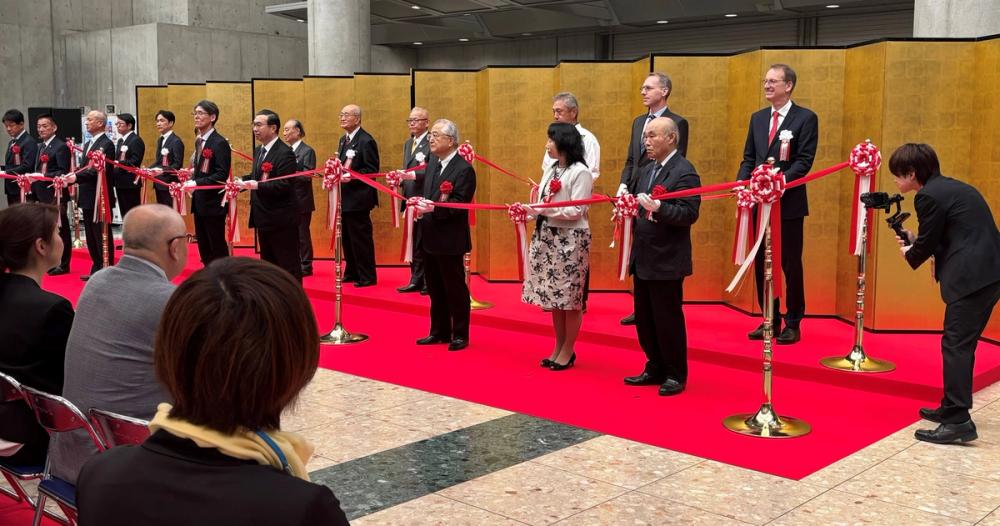
Tokyo is the latest show to be hosted by ProWein that now includes five event across Asia
Having such a strong presence and reputation in South East Asia is particularly important for ProWein, says Schmitz. The Asian market for wine might not as grown as first predicted, but it remains of key strategic importance.
As well as trade shows ProWein also runs its City Promotion initiative with over 80 events held in 2024 in key cities such as Beijing, Guangzhou, and Shenzhen as well as events in Tier 2, Tier 3, and Tier 4 cities.
ProWein is also using its international shows to promote ProWein in Dusseldorf and is working with local trade groups to invite key players from markets such as Korea, Japan and China.
Currently around 5% of visitors to Dusseldorf show come rom Asia, mainly from China and Hong Kong, but that figure has been rising post-Covid and it is hopeful of attracting more buyers from target markets including Singapore, Malaysia, Indonesia, Vietnam and Thailand.
For as ProWein knows only too well market conditions around the world can change fast. Its role is to make sure it is following, listening and adapting to what the market it serves wants and then goes out to deliver it.
The momentum may well be behind Wine Paris, and there is no doubt the speed of its growth has taken ProWein by surprise and delivered a few bumps and bruises along the way. But it is no mood to sit back and roll over.
2025 will be a pivotal year for both the newly expanded Wine Paris and the consolidated, smaller ProWein. The drinks industry needs both to find a way of running sustainable shows that give their respective exhibitors and buyers the right platforms to do business.
* You can find out more about ProWein 2025 in Dusseldorf at its website here.
